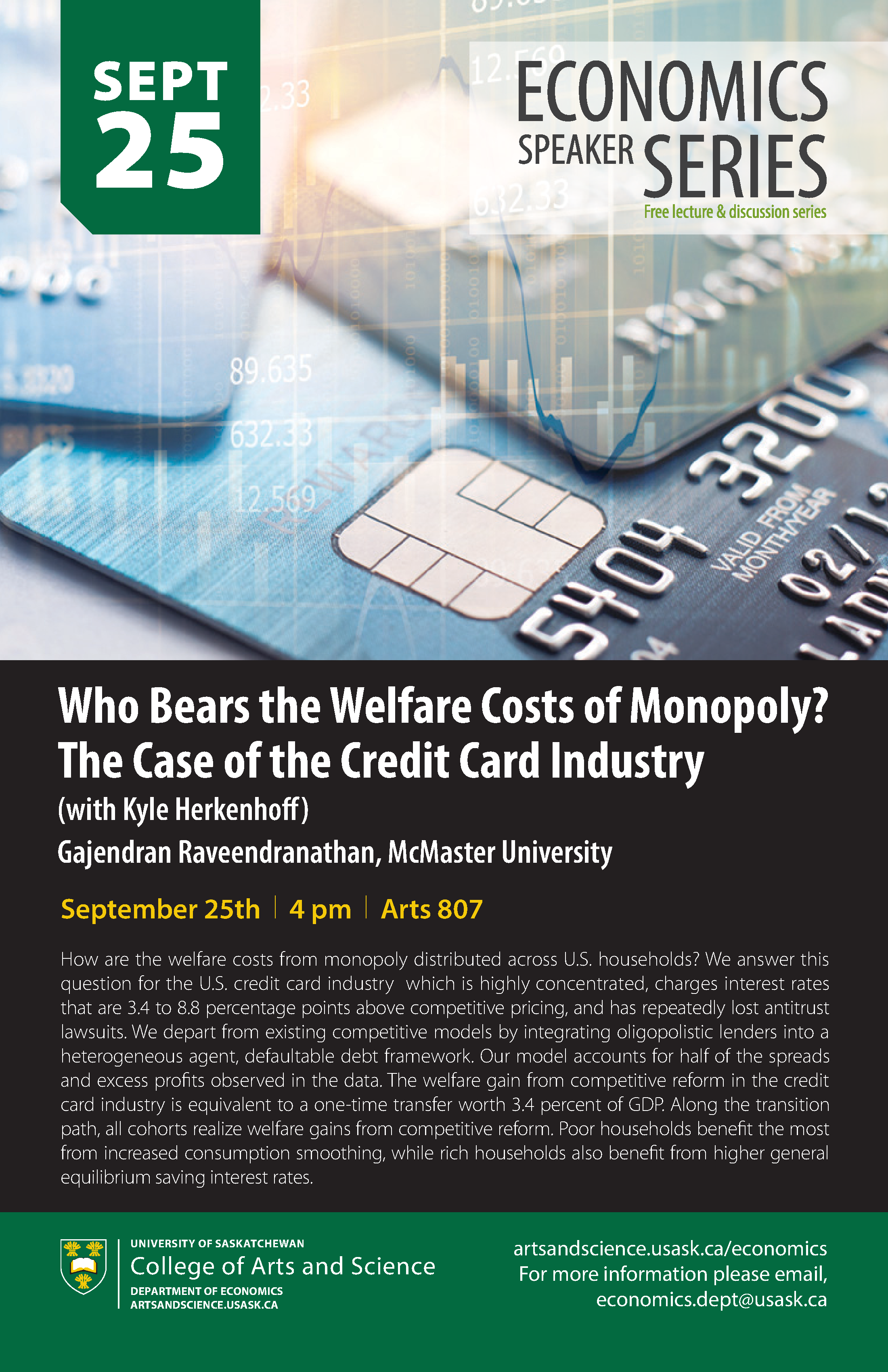
Gajendran Raveendranathan, McMaster University - September 25, 2019
Gajendran Raveendranathan, McMaster University will present a seminar at 4:00pm in Arts 807
Title: Who Bears the Welfare Costs of Monopoly? The Case of the Credit Card Industry (with Kyle Herkenhoff)
Abstract: How are the welfare costs from monopoly distributed across U.S. households? We answer this question for the U.S. credit card industry which is highly concentrated, charges interest rates that are 3.4 to 8.8 percentage points above competitive pricing, and has repeatedly lost antitrust lawsuits. We depart from existing competitive models by integrating oligopolistic lenders into a heterogeneous agent, defaultable debt framework. Our model accounts for half of the spreads and excess profits observed in the data. The welfare gain from competitive reform in the credit card industry is equivalent to a one-time transfer worth 3.4 percent of GDP. Along the transition path, all cohorts realize welfare gains from competitive reform. Poor households benefit the most from increased consumption smoothing, while rich households also benefit from higher general equilibrium saving interest rates.